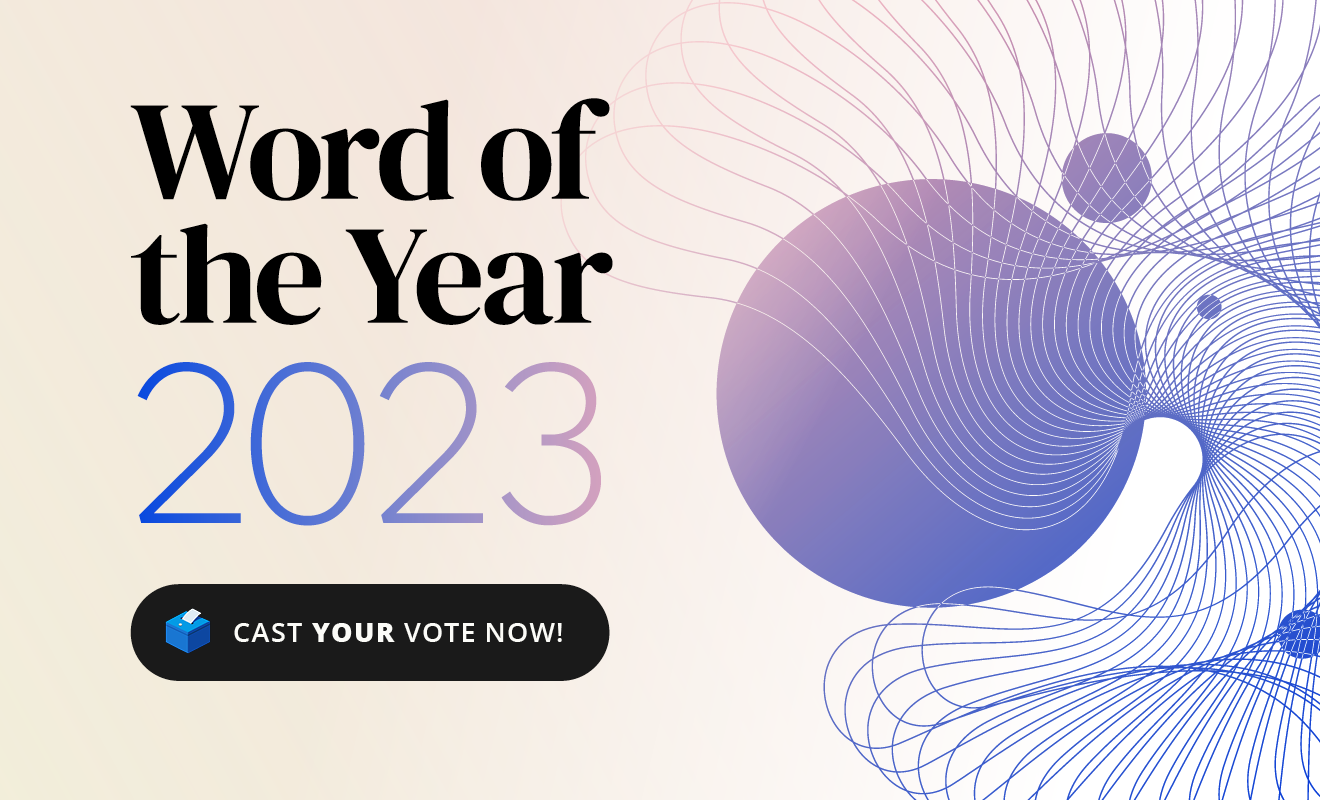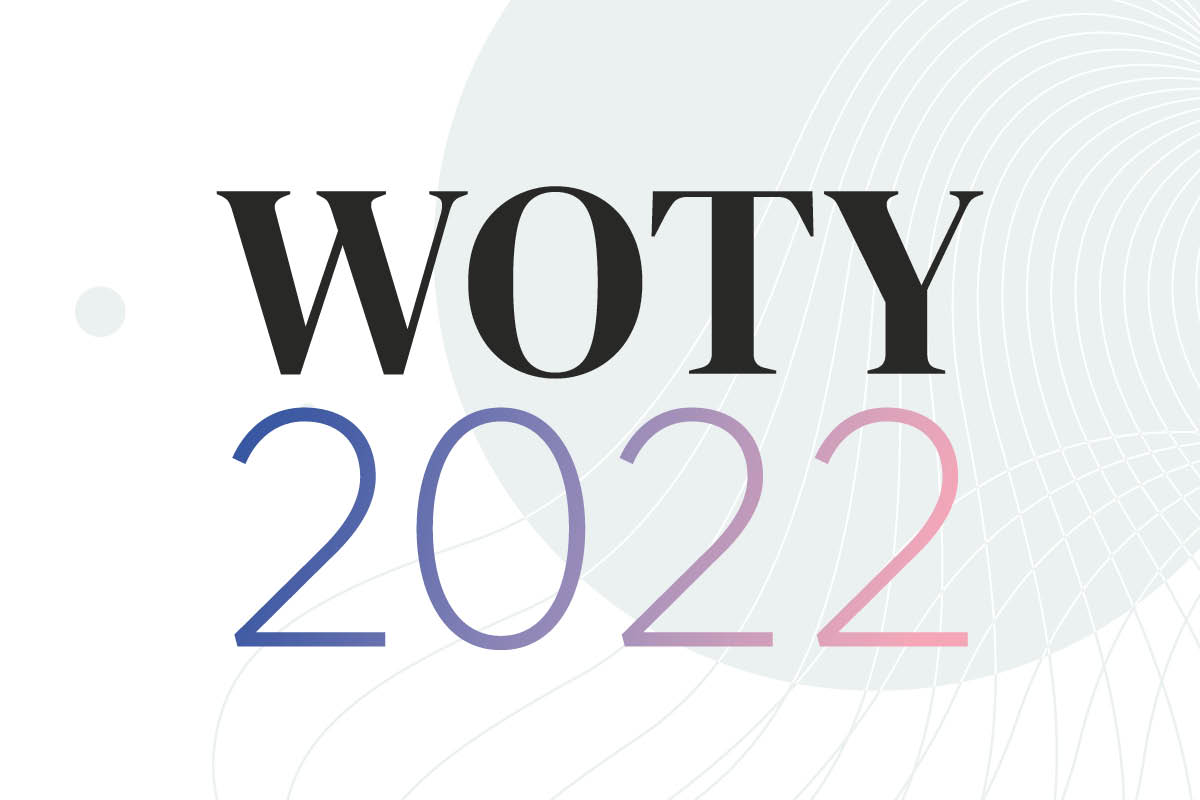What does Oxford Word of the Year mean to us?

What is Oxford Word of the Year?
Oxford Word of the Year is an increasingly anticipated part of the calendar.
Every year, our experts debate candidates for our word of the year and decide on words which reflect the ethos, mood, or preoccupations of a particular year, and which have potential to provide a snapshot of social history through language.
Whether we choose a neologism or an established word which has taken on extra significance in the year, Oxford Word of the Year captures the imagination and gets people around the world talking about language.
In the past, we have chosen ‘selfie’, ‘vax’, and ‘goblin mode’—words which have summarized and captured evolving behaviours, world events, and the public’s post-pandemic mood respectively.
“Oxford is a household name for so many different reasons for millions around the world, but the Oxford Word of the Year for me is one of the most exciting moments that we celebrate with our community. It represents OUP’s unrivalled expertise, role, and impact in recording language as society evolves, and encourages us all to reflect on what we have experienced over the year (plus, it provides some brilliant suspense as we wait to find out what Oxford’s crowned Word of the Year will be!).”
– Victoria Montgomery, Senior Brand Manager
How do we choose the Oxford Word of the Year?
Our lexicographers use our corpora of written and spoken language data to look for trends in the year, analyzing the language we use to see what it says about society. We look at whether there is a word which can sum up a year, or at least part of it.
During a year, societal changes can often affect our language: both the words themselves, but also the way in which we use certain words. Sometimes these changes are ephemeral, meaning that although the word is used now, it may not be used (or used in the same way) in the future.
Candidates for Oxford Word of the Year do not need to be neologisms or newly coined words or phrases. They can be words that are already known and used. However, what is most important is that the word relates to that particular year in some part. If the candidate word is not a neologism, it may be that global events—positive or negative—have brought it to prominence and given it extra significance in that particular year.
“In a world that is increasingly interconnected, it’s fascinating to see how the chosen word serves as a bridge between nations, offering a common ground for dialogue. Word of the Year provides a snapshot of global conversations, transcending borders, and languages. My view is that this shared linguistic moment fosters a sense of community, as people from different parts of the world reflect on the implications and distinctions of the chosen word. The selected word often mirrors the challenges and triumphs of the year, acting as a mirror to the collective consciousness. In this way, Oxford Word of the Year serves as a catalyst for broader conversations about the issues that matter most to us.”
– Jarita Raga, Marketing Content Specialist
What was the approach for 2023?
Last year, we put the selection of our Word of the Year completely in the hands of the public. Over 340,000 people voted, with 93 per cent of the vote going to the winner, ‘goblin mode’. It was clear that people enjoyed not just talking about the Word of the Year, but also being a part of and having a voice in our process.
This year, we once again gave people across the world the opportunity to be involved in the selection process of our Word of the Year by opening up a shortlist of eight words and phrases to a head-to-head public vote.
From the head-to-head votes, the public votes would decide the final four words which will be put to our language experts to decide on the definitive Oxford Word of the Year, taking into account the votes and commentary we have received from the public.
“I love ‘de-influencing’ for two reasons. As a marketing director, it’s interesting to see the opposing forces of influencers and de-influencers in play, and their power to impact company, brands, and products—less hype and more honesty must be a good thing. But as someone who has spent years railing against fast fashion, the implied meaning of discouraging overconsumption is so important. At this time of the year, in particular, that’s an important message to get across social channels.
I also love ‘rizz’. I’m sure my teenage son would cringe at the thought that I might like or even say this word out loud, but it’s so satisfying! What it means, its sound, and the many ways it can be used (‘with rizz’, ‘unspoken rizz’, and so on). With all the very real challenges in our world, there’s something comforting about the simple joy of a word like ‘rizz’.”
– Rachel Goode, Marketing Director, Academic
Which word had your vote? Use #WOTY23 on X (Twitter), Instagram, and LinkedIn to join the conversation.
We will announce the winner of Oxford Word of the Year 2023 on Monday 4 December.




